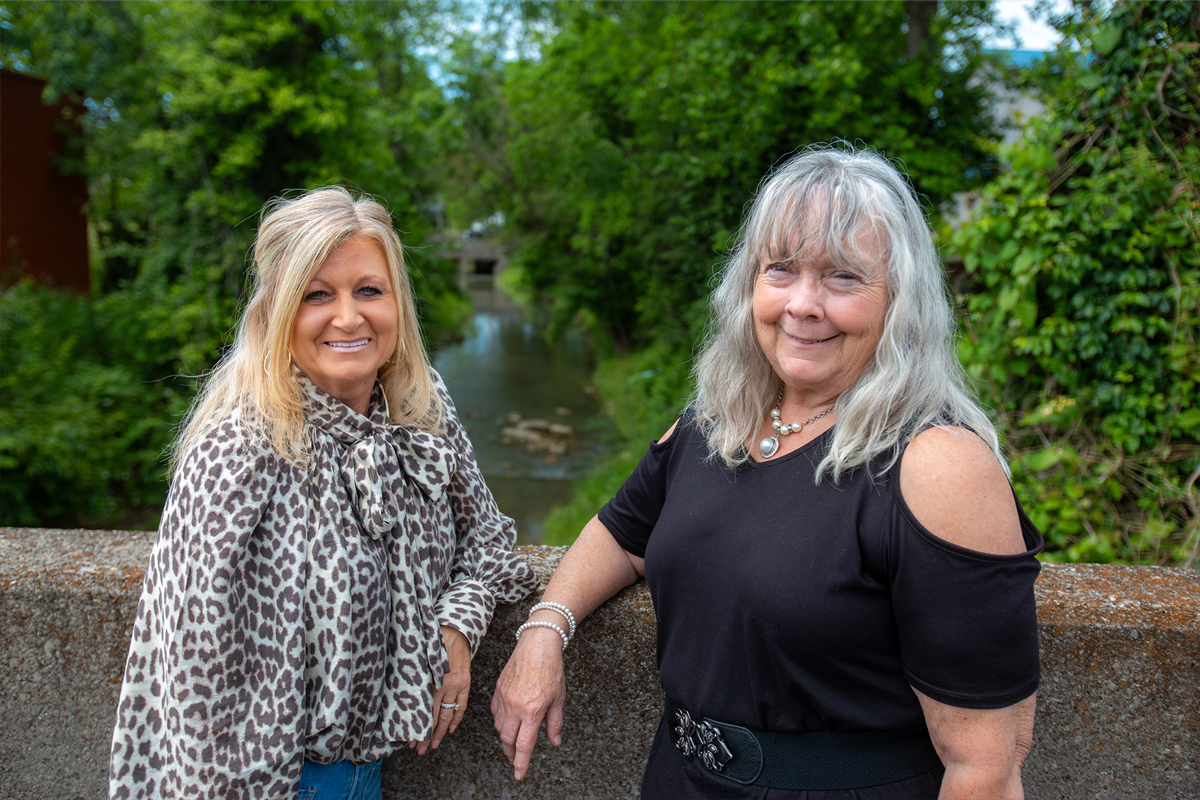
Mayor Kathi May never planned on running for office. “Never in my wildest dreams,” she says, laughing. But a decade on the city council and now seven years into her mayoral term, she has become a steadfast steward of Campton, Kentucky—a small town of about one square mile that supplies water to the entire Wolfe county.
She describes it with love: a place where neighbors wave from their porches, where “free entertainment” means bonfires, bike rides, and catching up at the post office. But also how beneath that charm lies a reality that many rural communities face: aging infrastructure, growing demands, and limited resources to keep things running.
Big Needs, Small Resources
May recalls that “Within the last two years, we had four very huge projects that we had to do match on,” referring to the large sums of money that are often required to secure grant funding for vital projects. One of those projects was the town’s historic pedestrian bridge, the only safe crossing for walkers along the main stretch. It was rapidly deteriorating. The match requirement alone—$186,000—would have forced Campton to borrow money it didn’t have.
Campton’s water treatment plant—built in 2011—had also reached a tipping point. “Our membranes are needing to be replaced. Those are over $300,000… Just a lot of upgrades need to happen at our water treatment plant,” May says of an equally urgent project. And the strain wasn’t just structural. With the region’s tourism boom, Campton’s single water source, Wolfe Lake, couldn’t keep up. “It really does add a huge strain on my water system.”
“I was really, really worrying about where we were going to get the money,” says May.
A Lifeline: The GRANT Program
Then came the GRANT Program. “Honestly, it was a little too good to be true,” she says of first hearing about the program, administered by the Kentucky Cabinet for Economic Development program, that offers rural Kentucky nonprofits and municipalities the matching funds they need to secure transformative federal grants. But the support came through, Campton’s match shrank to something manageable—even negligible—and the projects moved forward.
For a city with an annual budget of $1.9 million, avoiding a six-figure match requirement was monumental. “The Bridge Project alone… I mean, it is like a staple in our town, honestly,” May says. “For [the community] to see that we’ve secured all the funding that we need and that we’re actually moving forward… that’s huge.”
Another project hit especially close to home: a long-delayed waterline extension to about 80 households just outside Campton, where residents relied on failing wells that pulled sulfur, stained tubs, and left water undrinkable. “We have actually had this project profile submitted since I’ve been mayor,” May says. But without a clear funding path, it remained in limbo—until the GRANT Program changed everything. “They were very happy to get good, good city water,” says May.
Among them was Donna Brewer, a Wolfe County native whose family has lived along Lacey Creek since 1856. She and her neighbors had spent decades relying on unreliable, often contaminated wells. “We could see the road that carries city water,” she said. “It was so close... yet so far away.” For more than 30 years, Donna asked local leaders for help—often stopping Mayor May at the post office or grocery store to ask when the water would come. “Every encounter... she would remind me,” May recalls. When the GRANT Program finally brought the project to life, Donna’s long wait ended. “It’s just great,” Donna said. “We’re so appreciative.” Now, instead of questions, she and Mayor May share something much more satisfying: a quiet smile.
More Than Money: A New Future for Campton
In total, four major projects were launched in Campton thanks to the GRANT Program, providing unprecedented infrastructural improvements and financial leverage for the community of less than 400 residents: with under $15,000 in local funds—and less than $2 million from the state’s match pool—Campton was able to bring down more than $10 million in federal infrastructure funding.
But for Mayor May, the shift was more than financial—it was cultural. For so long, the status quo meant putting off projects, stretching city budgets thin, and hoping for the best. Now?
“It shows that there are people that actually care about a little town and that we can continue to grow and to move things forward.” — Mayor Kathi May
And grow it will. Campton is working with regional water commissions to stabilize its supply and support new development, including a proposed satellite campus of Hazard Community and Technical College. “Just feeling a sense of knowing that we are able to provide…” May said, “that’s everything.”
Campton didn’t just get funding—it got momentum. It got hope. And it’s proof that when rural communities get the support they need, they don’t just maintain—they move forward.